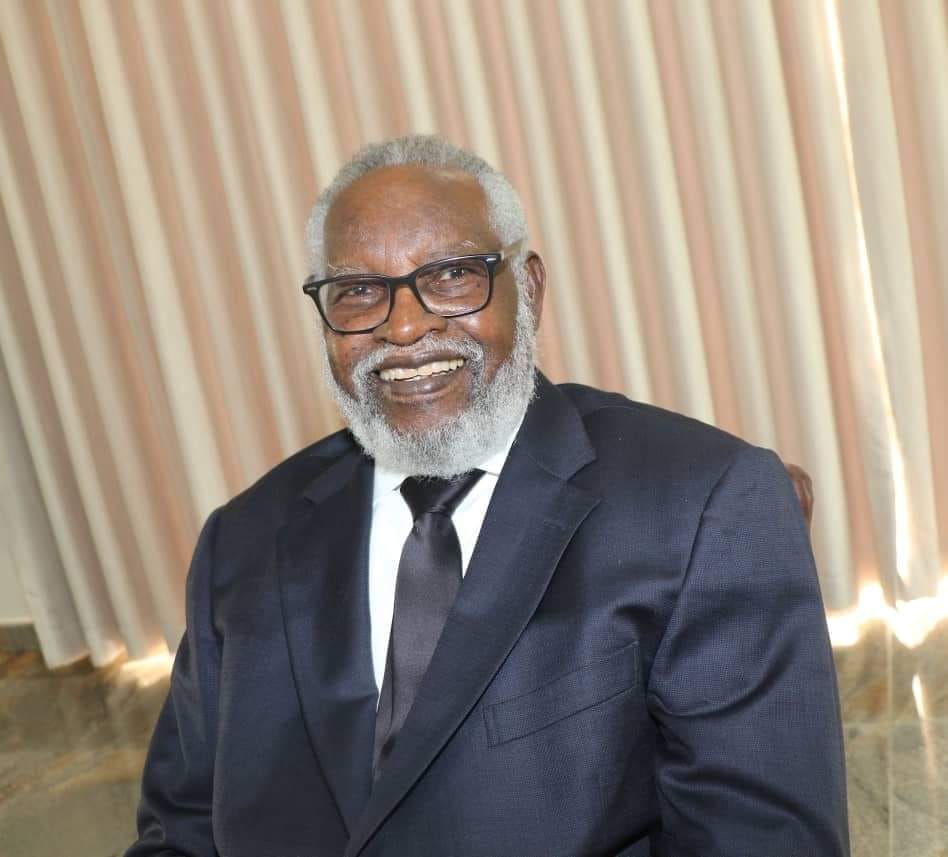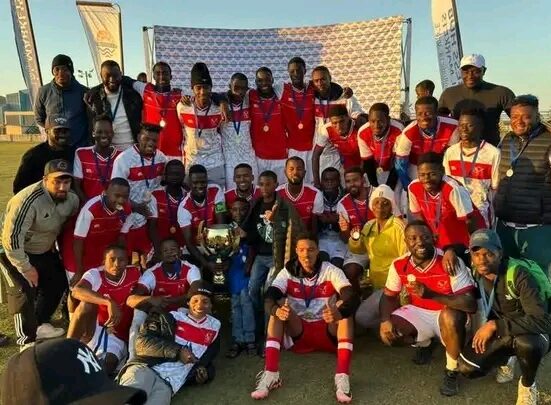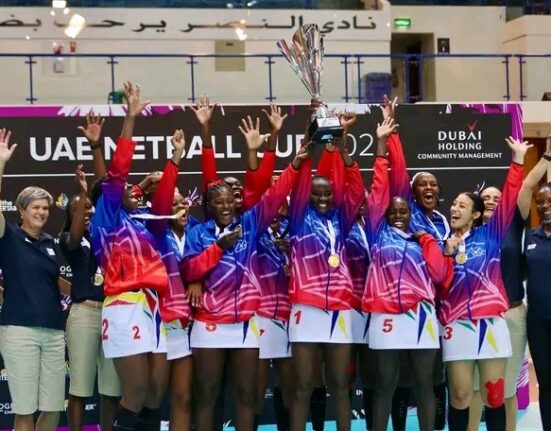Sam Nujoma, often regarded as Namibia’s founding father, played an instrumental role in the country’s liberation and subsequent independence. His leadership, determination, and unyielding dedication to the cause of self-determination transformed Namibia from a colony under South African apartheid rule to an independent, sovereign nation. As the first President of Namibia, Nujoma’s influence and legacy extend far beyond his tenure in office, shaping the political, social, and economic landscape of the country. This article delves into Nujoma’s life, his contributions to Namibia’s independence, and his enduring legacy as a statesman and symbol of resilience for his people.
1. Early Life and Political Awakening
Sam Nujoma was born on May 12, 1929, in the Oshana region of northern Namibia, in a small village called Okahao. His early life was shaped by the harsh realities of colonialism and apartheid. Namibia was under South African control, and the indigenous populations were subjected to severe racial discrimination, land dispossession, and political disenfranchisement.
Nujoma’s initial education took place in a mission school where he was exposed to the wider world beyond his village. It was during this time that he first became aware of the injustices his people faced. In the late 1940s, Nujoma moved to the capital, Windhoek, to work as a laborer and became involved in political activism. The growing sentiment for self-determination among Africans in Southern Africa inspired him to take action against the system of colonialism that oppressed his people.
2. Formation of SWAPO and the Fight for Independence
Nujoma’s political career began in earnest when he joined the Ovambo People’s Organization (OPO), which later became part of the broader South West Africa People’s Organization (SWAPO). In 1960, Nujoma played a key role in the formation of SWAPO, a political party that would become the leading force in Namibia’s liberation struggle.
SWAPO’s objective was clear: to end South Africa’s illegal occupation of Namibia and secure the country’s independence. Under Nujoma’s leadership, SWAPO adopted a dual strategy, combining diplomatic efforts with armed resistance. The party established the People’s Liberation Army of Namibia (PLAN), which launched guerrilla warfare against South African military installations and infrastructure.
Throughout the 1960s and 1970s, Nujoma traveled extensively, garnering international support for the Namibian cause. SWAPO became the recognized representative of the Namibian people at the United Nations (UN), and the organization’s legitimacy was bolstered by the recognition of the international community. Nujoma’s charisma, leadership, and unwavering commitment to the independence of Namibia earned him widespread respect, not only in Namibia but across the African continent.
3. The Struggle and International Support
During the armed struggle, Nujoma and SWAPO faced immense challenges. The South African Defense Force (SADF) was well-equipped, and SWAPO’s forces were often at a disadvantage. However, Nujoma’s ability to unite different factions and maintain the focus on the goal of independence was crucial. His leadership in Angola and Zambia, where many of SWAPO’s military operations were based, further solidified his position as a key figure in Southern Africa’s liberation movements.
International support for SWAPO grew during this period. Many African nations, as well as socialist countries like Cuba and the Soviet Union, provided military and financial assistance to the organization. In 1966, the UN General Assembly formally recognized SWAPO as the legitimate representative of the Namibian people, which was a significant diplomatic victory for Nujoma and the organization. The international community also began to impose sanctions on South Africa, further isolating the apartheid regime and increasing pressure for Namibia’s independence.
One of Nujoma’s most significant diplomatic achievements was his successful lobbying for Namibia’s case at the UN. He consistently advocated for Namibia’s right to self-determination, and his efforts were integral in bringing Namibia’s cause to the forefront of the global anti-colonial movement.
4. The Road to Independence: The 1988 Tripartite Agreement
By the late 1980s, the political and military situation had shifted. South Africa, facing growing pressure from both internal resistance and international sanctions, began to explore a peaceful resolution to the Namibian issue. In 1988, Nujoma and SWAPO played a key role in negotiating the Tripartite Agreement, a peace accord between South Africa, Angola, and Cuba, which set the stage for the eventual independence of Namibia.
The Tripartite Agreement led to the withdrawal of South African troops from Namibia and the establishment of a UN-supervised process for free elections. The 1989 elections were a turning point, as SWAPO emerged victorious, securing more than 50% of the vote. This paved the way for Namibia’s independence on March 21, 1990, with Sam Nujoma being sworn in as the first President.
5. Nujoma’s Presidency: 1990-2005
Upon independence, Sam Nujoma became Namibia’s first democratically elected president. His presidency was marked by efforts to unite a divided nation, heal the wounds of colonialism, and address the economic challenges left behind by apartheid. Nujoma was committed to nation-building, focusing on economic development, education, and healthcare as key areas for national progress.
Under Nujoma’s leadership, Namibia made significant strides in establishing democratic institutions, a market economy, and a functional political system. Nujoma advocated for national reconciliation and social justice, which included efforts to address the land question and provide reparations for the victims of apartheid policies.
Despite some criticism regarding economic inequality and corruption, Nujoma’s leadership helped lay the foundation for Namibia’s future success. His policies focused on reducing poverty, promoting gender equality, and building a strong civil society.
6. Nujoma’s Role in African Politics
Beyond his role as Namibia’s president, Sam Nujoma was also a prominent figure in African politics. He served as a key member of the Organization of African Unity (OAU) and later the African Union (AU). He advocated for African unity and solidarity, often positioning Namibia as a champion of anti-colonial and anti-apartheid struggles on the continent.
Nujoma’s foreign policy was marked by a commitment to peace, stability, and African self-determination. He supported various liberation movements across Africa, particularly those in South Africa, Angola, and Zimbabwe. His leadership also earned Namibia a reputation as a supporter of the African Pan-African movement and the quest for greater economic and political integration across the continent.
7. Legacy and Influence Post-Presidency
Sam Nujoma stepped down from the presidency in 2005 after serving three terms, as per Namibia’s constitution. However, his influence on the country remained strong, as he continued to be an important figure in SWAPO and the political life of Namibia. He transitioned into a position of elder statesmanship, advocating for the principles of independence, unity, and progress.
Nujoma’s legacy is not without its complexities. Critics have raised concerns about the challenges Namibia faced during and after his presidency, particularly with regard to economic inequality, land reform, and government transparency. Despite these issues, Nujoma’s role in securing Namibia’s independence and his enduring influence in shaping the country’s political culture cannot be overstated.
Nujoma’s legacy also includes his role in ensuring Namibia’s peaceful transition to democracy and his commitment to building an inclusive society that prioritized education, healthcare, and infrastructure. His leadership has left an indelible mark on Namibia, and his influence continues to be felt in the country’s modern political landscape.
Sam Nujoma remains one of the most influential figures in Namibia’s history. His journey from a young political activist to the first President of an independent Namibia is a testament to his leadership, vision, and resilience. Through his tireless efforts to secure Namibia’s independence and his unwavering commitment to the principles of justice, equality, and self-determination, Nujoma has become a symbol of the country’s struggle for freedom.
As Namibia continues to navigate the challenges of post-independence governance, Sam Nujoma’s legacy remains an enduring source of inspiration and a reminder of the power of leadership in the face of adversity. His contributions to the liberation of Namibia and his role as the nation’s first president will forever be woven into the fabric of Namibia’s identity as a sovereign and democratic state.
Join 'Namibia Today' WhatsApp Channel
Get the breaking news in Namibia — direct to your WhatsApp.
CLICK HERE TO JOIN












